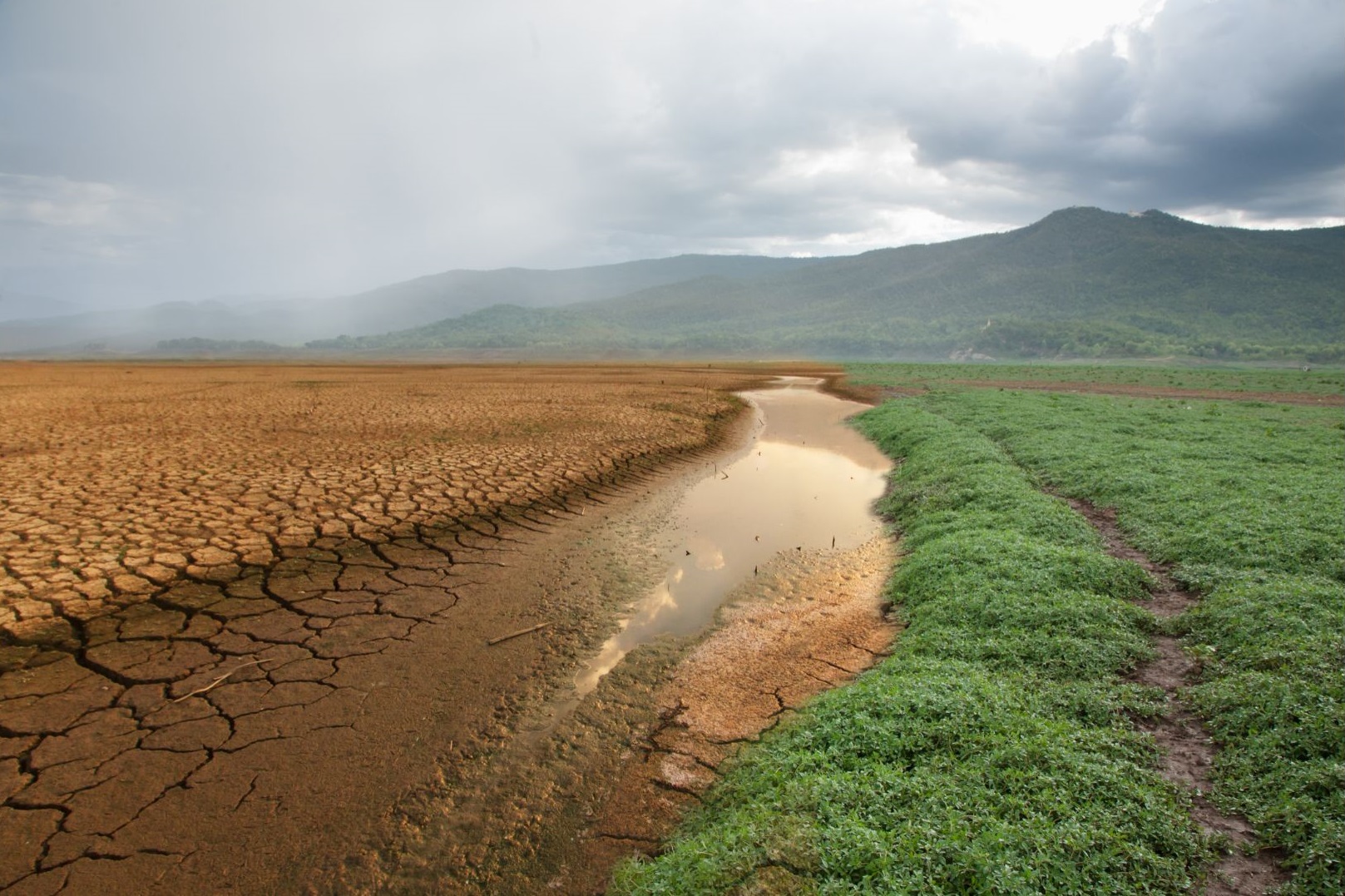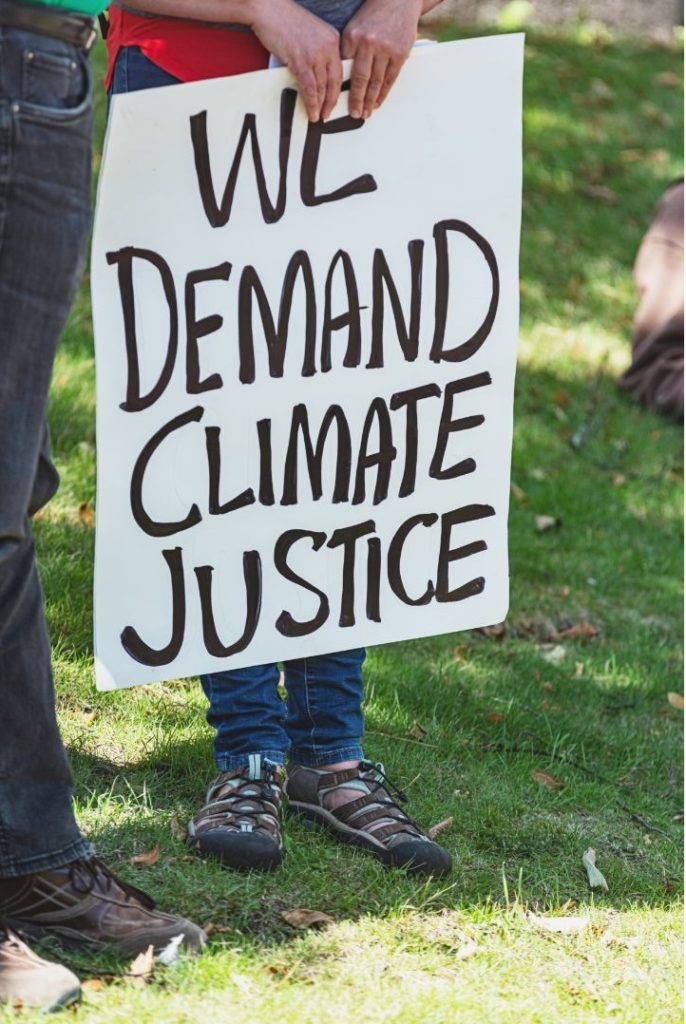
Imagine you go to a restaurant with your friends and order lots of dishes because it’s Sunday. Then you pay the bill and go home. Stop for a moment and reflect on what you have eaten. Certainly, you have left a profit to the restaurant and thus contributed to the municipality’s economy. However, have you considered all the effort in terms of production and environmental impact invested into making each ingredient and each dish? This is just one of many examples: our daily activities have implicit consequences, which are becoming ever more pronounced, to the extent that they can affect our health and the dynamics of the population and the planet.
We live at a turning point in the history of humankind. Perhaps for the first time, we can change the planet at a global level, and consequently, we speak of the Anthropocene or human epoch as a new geological era¹. This capacity for transformation on a global scale has also led to our being the main cause of our major problems, such as dealing with natural phenomena in the same way as in the past. Whether by action or inaction, we are the cause of climate change, famine or the spread of many diseases. For example, according to a Harvard Medical School study, there were 8 million premature deaths in 2015 that could have been prevented by public health interventions². But this increased capacity to generate global problems is also accompanied by an unprecedented knowledge of their causes, consequences, and solutions. Consider the case of climate change. Its origin lies in anthropogenic emissions of greenhouse gases. Its consequences are economic and social. And we know that the solution must be to reduce greenhouse gas emissions and, at this stage, adopt adaptation measures. We have therefore solved the main technological and economic problems, turning climate change into a political and social problem.
In this political and societal approach, the costs of climate change represent a crucial aspect for defining mitigation (reducing emissions) and adaptation (reducing the effects of rising temperatures) measures. There is a growing number of studies undertaking careful analysis of data to understand how various elements of the economy respond to changes in different climate components.
It is well known that increases in mean temperature and heat spikes affect health (increasing mortality3 and reducing productivity in crops4 and at work, for example, by increasing sick leave and absenteeism5 or reducing cognitive skills6). Furthermore, it has been estimated that the best economic conditions occur at a mean temperature of around 13 ºC (which corresponds to regions with the strongest economies, such as the US, Japan or most of Europe), while economic productivity falls for higher temperatures7. This is a cause for concern, given that the poorest countries are located in areas around the equator with temperatures already above this optimum. These countries also have adaptation resources (for example, 99% of the losses that will occur in low-income countries are uninsured). The costs of the uneven impact of climate change (migration, conflict, etc.) can be as high as the direct effects of climate change8.
It is perhaps less well known, though not surprisingly, that climatic conditions also affect our mood9 (and thus our perception of well-being) and can trigger migratory flows and social conflicts10, even increasing the number of rapes and other violent acts11.
On a global level, if we do not change the emissions pattern, it is estimated that the global economy will shrink by 20% compared to keeping temperatures at current levels12.
This is without considering the possible effects of phenomenons for which we have no historical observations (for example, sea level rise), those aspects that do not occur in the GDP (such as biodiversity or migration conflicts), nor the increasing possibility of a breakdown of the thresholds of the Earth’s climate system, which would result in even more severe extreme weather events, such as the destruction of biodiversity or the collapse of ecosystems13.
But knowing the costs of climate change is not enough to solve the political and social problem since it is also necessary to determine the ethical parameters, i.e. society’s time preferences and inequality aversion.

The thing is, climate change is an ethical issue. Any solution requires consideration of intra- and intergenerational inequalities, as the distribution of its effects will be unequal, both temporally (with higher costs for future generations) and especially (with worse consequences for poorer regions and disadvantaged groups).
From an ethical point of view, both date and place of birth are morally arbitrary data and, therefore, should not confer more or less rights to a higher standard of living. This view leads to the defence of sustainability as an intergenerational criterion and the convergence of the well-being of different regions as an intragenerational criterion. But how can we simultaneously fight climate change, sustain living standards in developed countries and reduce inequalities? According to our estimates, the answer is that it is possible14. Indeed, we can eliminate unacceptable risks associated with temperature rises above 2 ⁰C and maintain acceptable expectations of convergence of living standards between richer and poorer regions while enjoying welfare growth that ensures a better standard of living for future generations. But these goals require global cooperation on emissions reductions and growth moderation, particularly in rich countries. It is important to stress that growth moderation does not imply a loss of quality of life.
On the other hand, moderate growth may be politically feasible in developed countries with the support of the majority of their people as long as such growth is more equitably distributed. In the last 25 years, 44% of the income increase has been concentrated in the world’s richest 5%. Specifically, in the US, more than 2/3 of the growth has gone to the most affluent 1%. If growth moderates but favours the majority of the population at the expense of the wealthiest 1%, sustainable growth policies will have the backing of the majority. Perhaps what prevents the more conservative parties from accepting the reality and urgency of climate change is precisely this relationship between the benefits of the richest and the measures necessary to solve problems connected to climate change, which require public intervention.
A direct consequence of this ethical approach is that economic growth and the distribution of efforts to mitigate the effects of climate change (for example, through the allocation of emission rights) are intimately connected. It is short-sighted to talk about growth without recognising its implications for climate change, just as we cannot talk about climate change measures without considering their close link to economic growth and distribution.
Conversely, tackling climate change can also be an opportunity to raise health standards and reduce inequalities if we take advantage of the synergies generated by emissions mitigation. For example, fossil fuels are the principal source of greenhouse gases but also the main drivers of air pollution, accounting for 85% of airborne particulate matter and almost all nitrogen-oxide and sulphur-oxide pollution. The welfare costs related to air pollution and lead exposure are estimated at US$ 4.2 trillion annually or 5.6% of total global economic output¹⁵. Therefore, reducing the use of fossil fuels would mitigate the medium- and long-term effects of climate change and the present impacts of pollution. In addition, reducing emissions would also have positive effects on inequality. While internationally, around 92% of pollution-related deaths occur in low- and middle-income countries, at the national level, these deaths are concentrated among minorities and marginalised groups.
NOTES
¹ P.J. Crutzen and E. F. Stoermer. The ‘Anthropocene’. Global Change Newsletter. 41: 17–18. (2000).
² B.C. Alkire et al. The Economic Consequences Of Mortality Amenable To High-Quality Health Care In Low- And Middle-Income Countries. Health Affairs 37, 988–996. (2018).
ᵌ Y. Guo et al., Global variation in the effects of ambient temperature on mortality: A systematic evaluation. Epidemiology 25, 781–789 (2014). Ver también OMS y Lancet Report.
⁴ M. Burke et al., Global non-linear effect of temperature on economic production. Nature 527, 235–239 (2015).
⁵ J. Graff Zivin and M. Neidell, Temperature and the allocation of time: Implications for climate change. Journal of Labor Economics 32,1–26 (2014).
⁶ Joshua Graff Zivin et al., Temperature and Human Capital in the Short and Long Run. Journal of the Association of Environmental and Resource Economists 5, 77-105 (2018).
⁷ Idem. M. Burke et al. (2015).
⁸ F. Dennig et al. Inequality, climate impacts on the future poor, and carbon prices. Proceedings of the National Academy of Sciences of the United States of America 112, 15827-15832 (2015)
⁹ Patrick Baylis, Temperature and Temperament: Evidence from Twitter. Working Paper. December (2019).
¹⁰ M. Hsiang et al., Civil conflicts are associated with the global climate. Nature 476, 438–441 (2011).
¹¹ M. Ranson, Crime, weather, and climate change. Journal of Environmental Economics and Management. 67, 274–302 (2014).
¹² T.A, Carleton and S.M. Hsiang, Social and economic impacts of climate. Science 353.(6304), aad9837–aad9837. (2016).
¹ᵌ R. DeFries et al. The missing economic risks in assessments of climate change impacts. Policy Insight. The Grantham Research Institute, The Earth Institute of Columbia University, and the Potsdam Institute for Climate Impact Research. September 2019.
¹⁴ H. Llavador et al. Sustainability for a Warming Planet. Harvard University Press. 2015.
¹⁵ P.J. Landrigran et al. The Lancet Commission on Pollution and Health. Lancet. (2017).
ABOUT THE AUTHOR
Humberto Llavador is a Tenured Associate Professor of Economics at Universitat Pompeu Fabra (UPF), an Affiliate Professor of the Barcelona GSE and a researcher of Barcelona IPGE. Llavador holds a PhD in Economics from the University of California-Davis and visiting professorships at Yale University, the Grantham Research Institute (LSE), Korea University and INSEAD-Signapur. He is also a past scholar at the Institute for Advanced Studies in Princeton.
His research focuses on the economics of climate change, political economy, and welfare economics, with publications in the Quarterly Journal of Economics, the American Economic Journal: Microeconomics, Theoretical Economics, and Climatic Change, among others.
He has taught at UPF, the Barcelona School of Economics (BSE), Yale University, INSEAD-Singapore, Korea University, and the University of California. In 2012 Llavador received the Jaume Vicens-Vives Award for teaching quality and innovation from the Catalan Government and is a contributor to the CORE-econ project.
In 2015 he published the book Sustainability for a Warming Planet (Harvard University Press) joint with John E. Roemer and Joaquim Silvestre. The book received the X Catalan Economic Society Award in 2016 and has been reviewed in the Journal of Economic Literature, the Journal of Economic Issues, the Journal of Economics and Current Biology. He is currently a member of the scientific task force for the Planetary Wellbeing Initiative at UPF.
This article includes editions by Anna Garcia Tortosa (Fundesplai).

